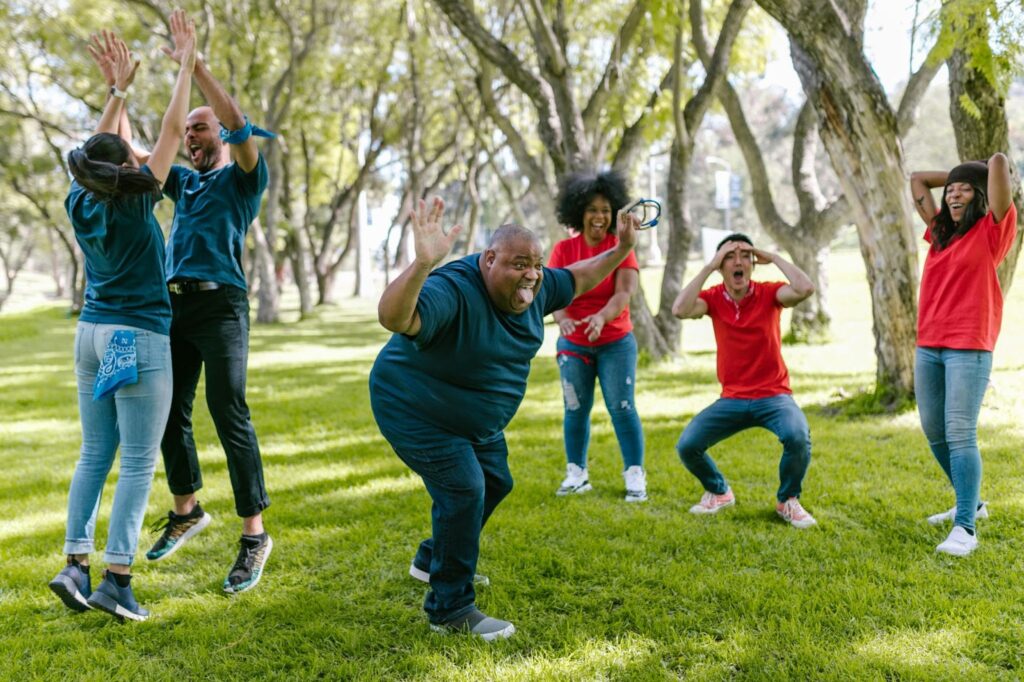Accountability is a cornerstone of successful teams. It ensures that everyone is responsible for their actions and commitments, fostering an environment of trust, transparency, and high performance. Implementing team accountability exercises can significantly enhance team dynamics and drive better results.
In this blog post, we will explore various team accountability exercises, their benefits, and tips for effective implementation to help your team forge stronger bonds and achieve greater success.
Understanding the Role of Accountability in Teams

Accountability in teams means that every member is responsible for their tasks and actions. It involves setting clear expectations, monitoring progress, and ensuring that everyone meets their commitments. Accountability fosters a culture of reliability and trust, where team members can depend on each other to deliver results.
Benefits of Accountability
Accountability has several key benefits for teams:
- Enhanced Trust and Collaboration: When team members are accountable, trust naturally follows. Knowing that everyone is committed to their responsibilities fosters a collaborative environment where individuals support and rely on each other. This applies to all types of team dynamics, including remote teams.
- Improved Performance and Efficiency: Accountability drives performance by ensuring that tasks are completed on time and to the expected standard. It also improves efficiency and critical thinking by minimizing delays and misunderstandings.
- Greater Team Cohesion and Morale: Teams with high accountability levels tend to be more cohesive and motivated. Shared sense of responsibility and mutual support contribute to higher morale and a stronger sense of unity and team spirit.
Effective Team Accountability Exercises
Implementing structured accountability exercises can help embed accountability into your team’s culture. Here are some effective exercises to consider:
Daily Stand-Up Meetings
Daily stand-up meetings are short, focused 15-30 minute sessions where team members briefly share their progress, plans, and any obstacles they face. These meetings promote accountability by:
- Fostering Transparency: Everyone knows what their colleagues are working on, which helps to align efforts and identify dependencies.
- Encouraging Responsibility: Team members are encouraged to take ownership of their tasks and report on their progress regularly.
- Facilitating Quick Issue Resolution: Any obstacles or challenges can be addressed promptly through carefully-cultivated problem-solving skills, ensuring that they don’t hinder progress.
Peer Review Sessions
Peer review sessions involve team members providing feedback on each other’s work. This exercise fosters accountability by:
- Promoting Continuous Improvement: Constructive feedback helps team members improve their work quality and performance.
- Building Trust: Regular peer reviews create an environment of mutual respect and culture of responsibility, as team members learn to value each other’s input.
- Enhancing Communication: Open discussions during peer reviews improve communication and collaboration within the team.
Team Retrospectives
Team retrospectives are meetings held at the end of a project or sprint to reflect on what went well, what didn’t, and how to improve. They promote accountability by:
- Encouraging Reflection: Team members reflect on their contributions and learn from their experiences.
- Identifying Improvement Areas: Retrospectives highlight areas for improvement, allowing the team to make necessary adjustments for team success.
- Fostering a Growth Mindset: Regular retrospectives instill a culture of continuous learning and improvement.
Accountability Partner System
An accountability partner system pairs team members together to support each other’s goals and responsibilities. This system promotes accountability by:
- Providing Support: Partners and team leaders can offer advice, constructive criticism, and encouragement to help each other stay on track.
- Enhancing Commitment: Knowing that someone else is monitoring their progress can motivate team members to meet their commitments.
- Building Relationships: Accountability partners build stronger interpersonal relationships, fostering a more cohesive team environment.
Goal Setting Workshops
Conducting goal setting workshops helps teams set clear, achievable goals and track their progress. These workshops enhance accountability by:
- Aligning Efforts: Workshops ensure that all team members understand and commit to common goals.
- Setting Clear Expectations: Clear goals provide a roadmap for what needs to be achieved and by when.
- Tracking Progress: Regularly reviewing goals keeps the team focused and accountable for their progress.
Tips for Implementing Accountability Exercises

Successfully implementing accountability exercises requires creating a supportive environment and fostering open communication for the entire team. Here are some tips:
Creating a Safe Environment
A safe environment where team members feel comfortable sharing their thoughts and feedback is crucial for accountability.
- Foster Psychological Safety: Encourage an atmosphere where team members can speak openly without fear of criticism or retribution.
- Encourage Openness: Promote a culture of transparency where everyone is encouraged to share their ideas and concerns.
Encouraging Open Communication
Open communication is key to effective accountability. Here are some ways to hold the team accountable while fostering a judgment-free zone.
- Promote Transparency: Ensure that all team members have access to the information they need to perform their tasks effectively.
- Use Collaborative Tools: Project management software tools like Slack, Microsoft Teams, and Trello facilitate real-time communication and keep everyone informed.
Recognizing and Celebrating Achievements
Recognizing and celebrating achievements reinforces accountable behavior.
- Public Acknowledgment: Regularly acknowledge individual and team accomplishments in meetings or through internal communication channels.
- Rewards and Recognition: Implement reward systems to celebrate significant milestones and contributions.
Continuous Learning and Adaptation
Emphasize the importance of ongoing learning and adaptation to maintain accountability.
- Seek Feedback: Regularly gather feedback from team members to understand what’s working and what needs improvement.
- Adapt and Evolve: Be flexible and willing to adjust your accountability exercises based on feedback and changing team dynamics.
People Also Ask
What are team accountability exercises?
Team accountability exercises are activities designed to promote responsibility, transparency, and collaboration within a team. These exercises help ensure that all team members are committed to their tasks and support each other in achieving common goals.
How do accountability exercises benefit teams?
Accountability exercises benefit teams by enhancing trust, improving performance, increasing efficiency, and fostering a cohesive and motivated team environment. They help create a culture of reliability and mutual support.
What are some examples of team accountability exercises?
Examples of effective team accountability exercises include daily stand-up meetings, peer review sessions, team retrospectives, accountability partner systems, and goal setting workshops. These exercises promote transparency, responsibility, and continuous improvement.
How can leaders implement accountability exercises effectively?
Leaders can implement accountability exercises effectively by creating a supportive environment, encouraging open communication, recognizing achievements, and promoting continuous learning and adaptation. Using collaborative tools and fostering psychological safety are also crucial for success.
Strengthening Team Bonds Through Accountability
Regularly practicing accountability team building activities is essential for building a cohesive, high-performing team. These exercises foster an environment of trust, transparency, and mutual support, driving enhanced performance and holding team members accountable positively. By implementing daily stand-up meetings, peer review sessions, team retrospectives, accountability partner systems, and goal setting workshops, leaders can cultivate a culture of accountability that leads to sustained success.
Encourage your team to embrace these exercises and witness the positive impact on performance and collaboration. Explore how Culture Partners can support your organization in enhancing team accountability. Schedule a complimentary consultation with one of our experienced senior partners to discuss tailored accountability strategies for your team. Let’s work together to create a culture of excellence and high performance.
